The respondent is 26 years old and Algerian. In 2018, he was deported from France to Algeria. That same year, he travelled to Turkey, and then to Thessaloniki, Greece, where he has lived since then. The respondent had submitted an asylum application in Greece and was in possession of a white card (International Protection Applicant’s Card).
On the 2nd March 2020, at 13:00 the respondent was alone in a cafe opposite the Thessaloniki Railway Station. Two officers, who were not in uniform, entered the cafe and asked the respondent if they could “check his papers.” After presenting his white card – which the respondent stressed was valid and within it’s expiration date – he was handcuffed by the officers and taken outside of the building.
The respondent was made to wait on the street until a further six police officers arrived on white motorcycles. They wore blue uniforms so were likely the local Greek police. All together the eight officers walked the respondent to the Thessaloniki Police Station HQ. The journey lasted approximately 10 minutes.
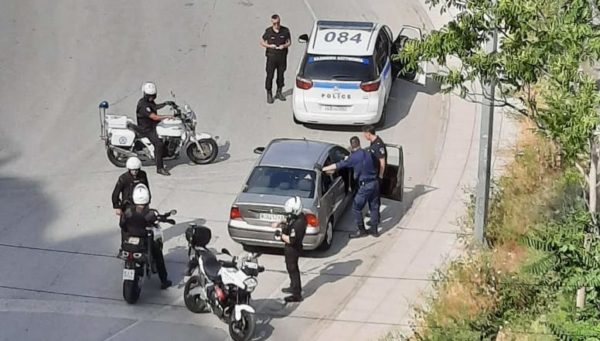
Inside the station, the respondent was placed in a cell with three Algerian males of a similar age to his own. The respondent asked why he had been arrested, despite possessing a white card, and was slapped across the face and racially abused by one police officer. The cell was reportedly filthy and their only source of water was from the toilet. The respondent remained there for 10 days.
On the 12th of March, the respondent was placed on a “big blue metal bus,” along with 15 other men from Algeria, Morocco and Tunisia. This description of vehicle corresponds to the riot vans used by the Greek police.
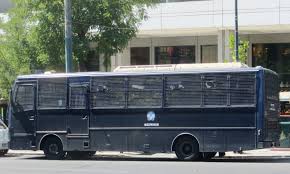
They were driven for two hours to Drama Paranesti Pre-Removal Centre, in northeastern Greece. Upon their arrival, the respondent was searched by the officers, who confiscated his white card, mobile phone and 30 Euros. None of these items were returned. On the third day of the respondent’s detention in the Camp, 30 police officers arrived from the city of Drama. All of the officers wore balaclavas; several were dressed in black clothes with “OPKE” (Greek riot police) displayed on their uniforms. According to the respondent, the police started to “beat everyone in the camp.” However, he stated that he was singled out and subjected to a particularly severe beating by the officers. When the respondent fell to the ground, one of the officers stamped on his head and he lost consciousness.
“One of them beat [me] by stick in [my] legs, and others kicked [me], [I] fell down directly,”
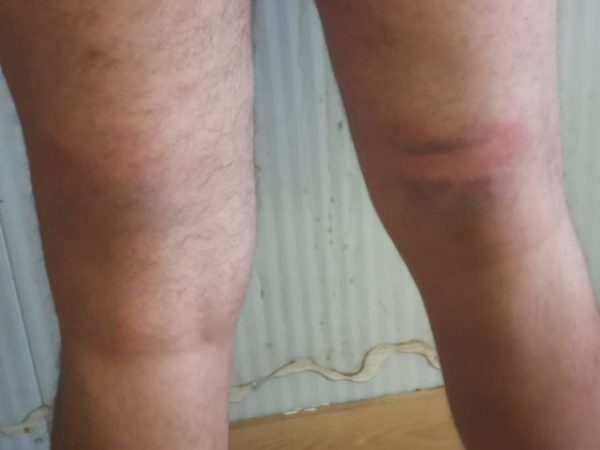
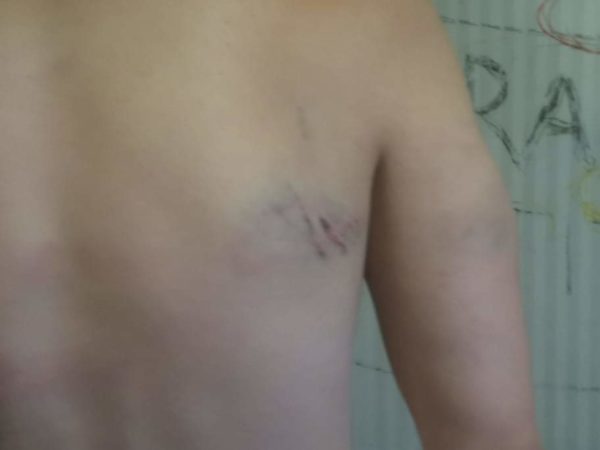
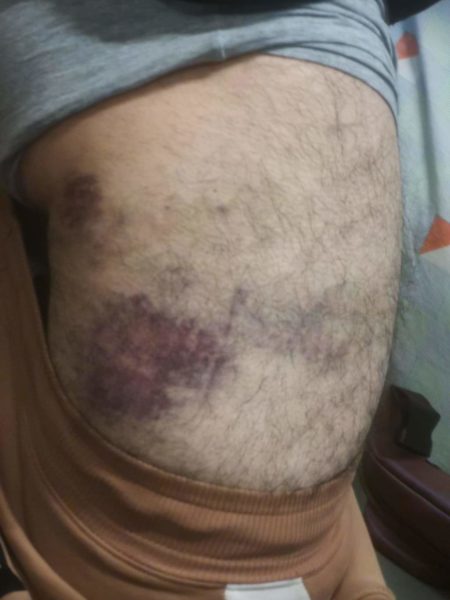
The respondent woke up in a hospital. He believes he had been there for one day and that it was the local hospital of Drama. Shortly after he regained consciousness, two police officers entered the room, cuffed the respondent and escorted him to a police car. He was driven back to the detention centre.
Returning to the detention centre, the respondent became distressed as he felt that he had been detained and beaten “without reason.” He said that he “started making trouble” and complained of being mentally unwell. Over the next 45 days, the respondent states he was hospitalised five times from violent altercations with the officers in the facility.
On the first day of Ramadan [23rd April, 2020], the respondent – now fasting – was taken from the detention centre at 11:00. He and 15 – 20 others were placed on a bus, resembling that described above, and were driven to the Meriç River. The respondent did not know the exact location.
“I don’t know the name of the place, I don’t know the position on maps, but I can go there now by myself, because [I] have crossed this place too many times”
At the river, there was a large contingent of Greek police officers and soldiers, exceeding 15 in number. All were wearing balaclavas and the respondent reports seeing the riot vans of the Greek police. The respondent and the group he arrived with were ordered to be silent and marched into a concealed wooded area. Here they waited around five hours until it was dark.
The group was then moved to the riverside. A black dinghy arrived shortly after. It was manned by two men whom, the respondent alleges, were Pakistani. This assertion of the respondent is based on his observation that the men spoke Urdu.
The respondent observed extensive cooperation between the Greek forces and the suspected Pakistani dingy drivers. Both parties communicated to each other in English. The respondent said:
“they [the Greeks] were helping them [the Pakistanis] to find the good points to help us cross from the Greek side to the Turkish side … because they were afraid of the Turkish army seeing them.”
The respondent was loaded with nine others into a dingy and ferried across the Meriç River. In Turkey, he flagged down a civilian vehicle that transported him to the Turkish village of Meriç.
